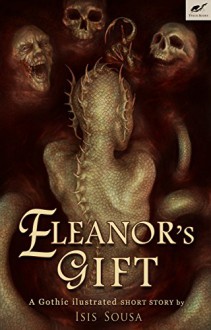
The introduction to my kindle version of The Castle of Otranto contains the following quote:
This novel has been called one of the half-dozen historically most important novels in English. The founder of a school of fiction, the so-called Gothic novel, it served as the direct model for an enormous quantity of novels written up through the first quarter of the nineteenth century; at one or more steps removed, it has inspired imitations and influenced other forms on up to the present.
And this may be true. If it is true, this proves that something may be influential while simultaneously being pretty awful. Because this book was pretty awful.
Last year, for the R.I.P. IX, I read Uncle Silas, which I described as “a heaping platterful of Victorian gothic what-the-fuckery that must be read to be believed.” I think that Uncle Silas would be considered one of those inspired imitations and influenced forms mentioned in the quote. That being the case, this is one of those occasions where what came after far exceeds what came before in quality.
To summarize, The Castle of Otranto is a short book in which the evil Manfred, a cartoon villain and evil usurper:

Tries to rape-marry a fainting damsel in distress who previously happened to be engaged to his son, who died when a giant helmet somehow fell on top of him, crushing him on his wedding day. No, I am not making this up.

The writing is crazy bad:
“I desired you once before,” said Manfred, angrily, “not to name that woman: from this hour she must be a stranger to you, as she must be to me; in short, Isabella, since I cannot give you my son, I offer you myself.” “Heavens!” cried Isabella, waking from her delusion, “what do I hear! you, my lord! you! my father-in-law! the father of Conrad! the husband of the virtuous and tender Hippolita!”—“I tell you,” said Manfred, imperiously, “Hippolita is no longer my wife; I divorce her from this hour. Too long has she cursed me by her unfruitfulness. My fate depends on having sons; and this night, I trust, will give a new date to my hopes.” At these words he seized the cold hand of Isabella, who was half dead with fright and horror. She shrieked, and started from him.”
It’s like a parody, but I think it is meant to be taken sort of seriously. Or maybe not, who can tell? If it is intended to be funny, it succeeded, because there were several moments which I think were supposed to be tension filled and dramatic at which I giggled. I’m not sure that is the reaction Walpole was looking for, but this book is simply ridiculous.
If you are interested in the earliest beginnings of the Gothic novel, by all means, give this one a whirl. If not, I’d skip it and go straight to Uncle Silas, by Sheridan LeFanu or Dracula by Bram Stoker, both of which are far superior in terms of genuine tension and Gothic atmosphere.


 Log in with Facebook
Log in with Facebook 













